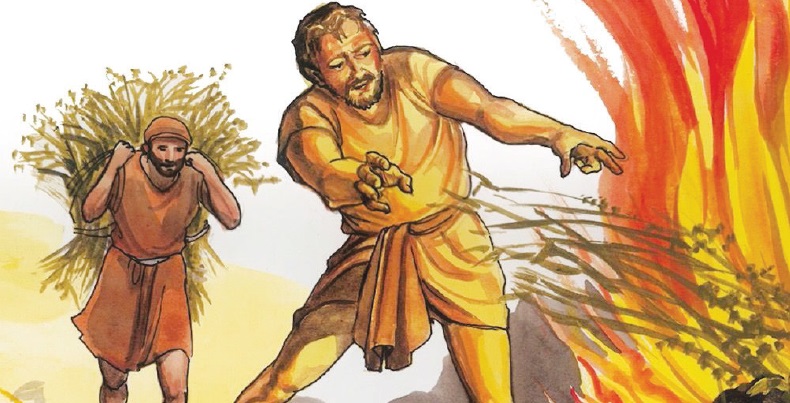Adversity begets growth
Ever since humanity learned the art of speech, storytelling has been one of the most effective ways of passing down teachings, traditions and lessons from the past to the future generations. Since not many people were able to learn the art of written communication, oral transmission became almost the norm.
Jul 21, 2023

Reflecting on our Sunday Readings with Fr Philip Tay, OCD
16th Sunday of
Ordinary Time (A)
Readings: Wisdom 12:13, 16-19
Romans 8:26-27;
Gospel: Matthew 13:24-43
Ever since humanity learned the art of speech, storytelling has been one of the most effective ways of passing down teachings, traditions and lessons from the past to the future generations. Since not many people were able to learn the art of written communication, oral transmission became almost the norm.
When we look at Sacred Scripture, many of the teachings were handed down orally rather than in written form. Literature such as Psalms and Proverbs were also likely to have been handed down orally by memorisation. Stories are usually able to bring to life certain teachings which are more complex or even not clearly understood by its intended audience. This is why Jesus used a lot of parables in the transmission of His teachings.
The people during the time of Jesus were largely uneducated. It was not because they were incapable of learning but because education was not as readily available as it is today. Those working as farmers, shepherds and fishermen did not need much education. This is why the use of parables and stories became a more effective means of teaching. This would also explain why some of the people who heard the teachings of Jesus did not understand what He was trying to tell them. Some concepts, even on the level of spoken words, were beyond their comprehension. We find this happening even today.
In today’s Gospel, Jesus tells the parable of the darnel and the wheat. We, as modern audiences, can understand it better because, generally, our education and life experience help us to grasp more complex concepts. However, someone who was a fisherman may not have understood this parable because they were not in the agricultural field. Given that some of Jesus’ disciples were fishermen, it was not surprising to see them asking Jesus to explain to them the meaning of the parable.
Jesus makes the distinction between the darnel and the wheat. The darnel is sown by the evil one and we know that this represents those who have rejected God while the wheat is sown by Jesus and this represents those who have chosen to follow Christ. Both darnel and wheat co-exist in the same field, which is represented by our world. This is still happening today. We know that we live among people who reject God and even make life difficult for those who follow God.
Wouldn’t it be easier if the darnel of this world were uprooted and the wheat allowed to grow without hindrance? It is easier said than done. What Jesus explained still holds true today. If one pulls out the darnel, if it were intertwined with the wheat, then the wheat comes along with it. If we apply this to humanity, some who follow God may have been affected or influenced by the words and actions of those who follow the opposite path. If a reaping were to take place, these “wheat” may be swept along together with the darnel. In other words, people who are disciples of God, tainted by the evil one, will be lumped together with the evil ones. This is not a good strategy.
A better strategy would be to allow both the darnel and the wheat to grow together and separate them at harvest time. Imagine if there were only good people on earth, what would that be like? Would there be a need to struggle and grow? Would there be a need to improve oneself? To a certain degree, perhaps. But it is only when humanity faces some kind of challenge or adversity that they learn to grow and mature. This is the same for faith. If we live in an ideal situation with no problems and no evil, our faith will likely stagnate and we will remain in a state of complacency. But if we live in an environment where our faith is constantly challenged, then it is likely that we will find ways to strengthen our faith and grow in maturity.
Therefore, the presence of darnel in our lives will help us in the purification of our souls and help us to grow and develop virtues that are worthy of the disciples of Christ. Those who stand tall at the time of harvest, those who have stood the test of time, resisting the works of the darnel, they will be the ones who will be gathered into the kingdom of God. That is our goal in life, that is what we need to focus on, to grow amidst the darnel of our life and to be counted worthy to be gathered into the kingdom of God.







Total Comments:0